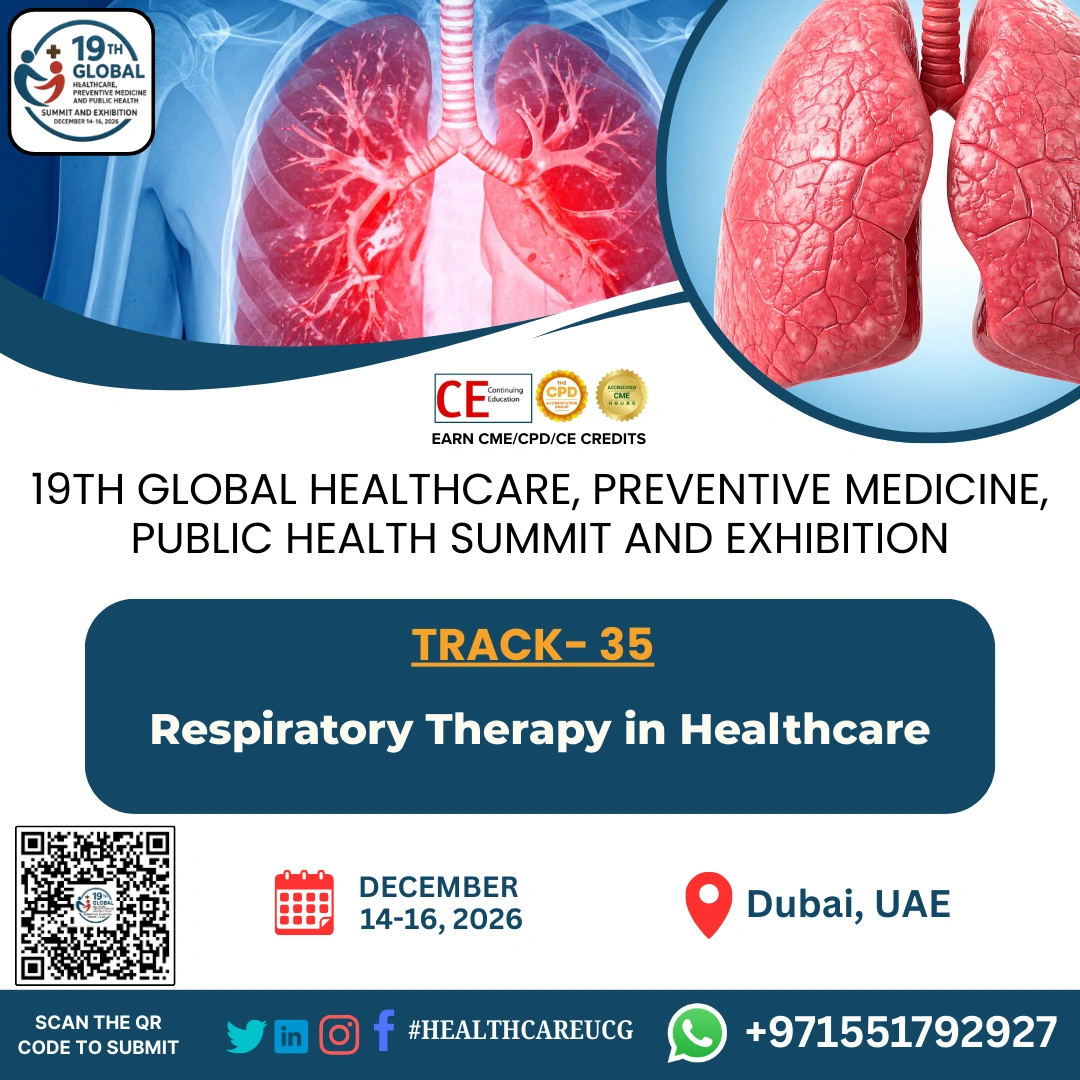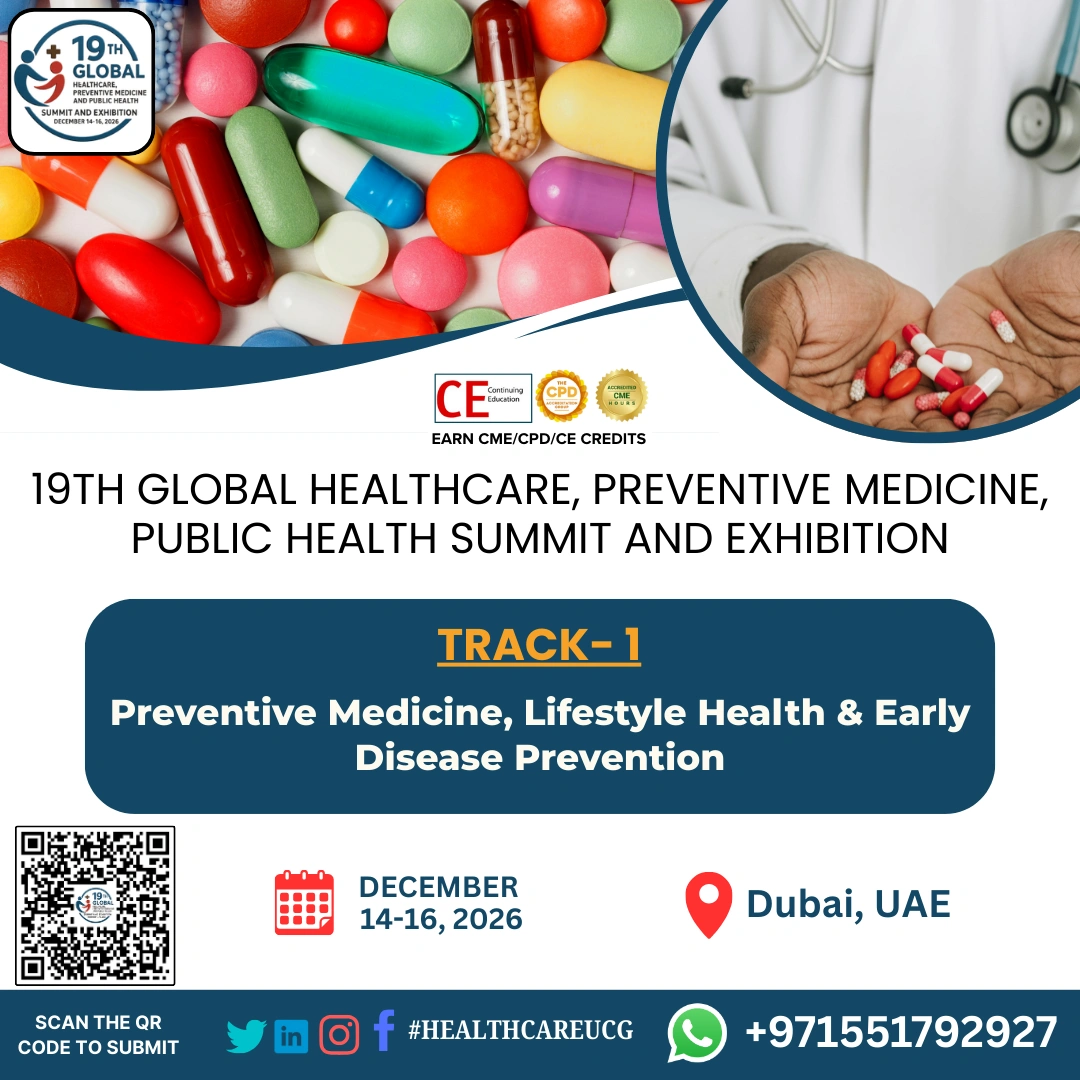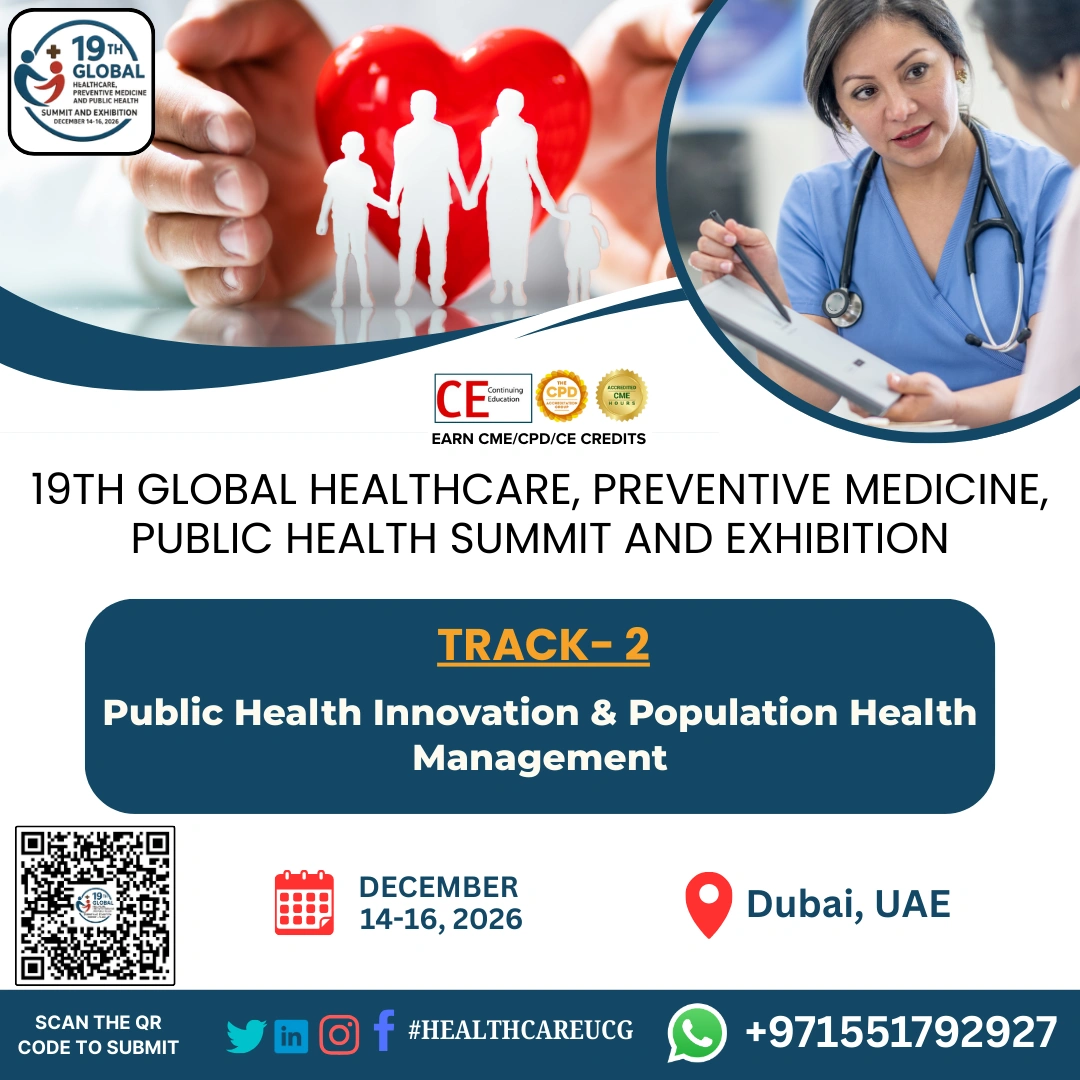



This track focuses on proactive healthcare approaches aimed at preventing diseases before they...

This track focuses on innovative public health approaches and data-driven strategies to improve...

Importance
Respiratory therapy plays a vital role in improving breathing, reducing complications, and enhancing quality of life for patients with lung conditions.
Conclusion
Advancing respiratory therapy practices and education is essential for strengthening pulmonary care and patient safety in healthcare systems.
#RespiratoryTherapy #PulmonaryCare #LungHealth #CriticalCare #PatientSafety #HealthcareConference #HospitalManagement #DubaiHealthcare #UAE2026